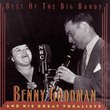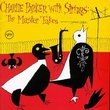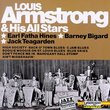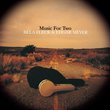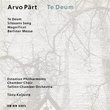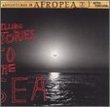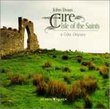| All Artists: Oscar Peterson Title: At the Concertgebouw Members Wishing: 0 Total Copies: 0 Label: Polygram Records Original Release Date: 1/1/1958 Re-Release Date: 7/26/1994 Album Type: Live Genres: Jazz, Pop Styles: Swing Jazz, Bebop Number of Discs: 1 SwapaCD Credits: 1 UPCs: 731452164926, 0731452164926 |
Search - Oscar Peterson :: At the Concertgebouw
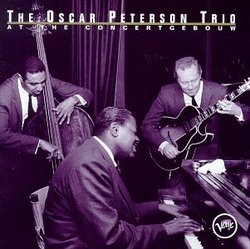 | Oscar Peterson At the Concertgebouw Genres: Jazz, Pop
These are classic live recordings of Peterson's superb trio with guitarist Herb Ellis and bassist Ray Brown, though there's long been confusion about the source. Despite the original LP title, the first eight tunes actuall... more » |
Larger Image |
CD DetailsSynopsis
Amazon.com These are classic live recordings of Peterson's superb trio with guitarist Herb Ellis and bassist Ray Brown, though there's long been confusion about the source. Despite the original LP title, the first eight tunes actually came from a 1957 Jazz at the Philharmonic concert at Chicago's Civic Opera House. The final five tracks were originally issued on At the Opera House, an LP that Peterson's trio shared with the Modern Jazz Quartet. Those tracks, however, were actually recorded in Los Angeles's Shrine Auditorium. The confusion about venues hardly matters. These are first-rate documents of the group, a drummerless trio to which each member brought a focus on rhythmic essentials, from driving uptempos to the loping swing of "When Lights Are Low." Peterson's stylistic roots in Art Tatum are apparent from the start with "The Lady Is a Tramp," while Ellis's penchant for the blues shines even at the ferocious tempo of Bud Powell's "Budo." At its best, the group combines complex arrangements with a highly developed sense of interplay. It's especially apparent on the bop tunes here, like Clifford Brown's "Daahoud" and "Joy Spring," while Peterson's powerhouse playing comes through on "Bluesology." --Stuart Broomer Similarly Requested CDs
|
CD ReviewsAlways my first recommendation Russell | 09/30/2004 (5 out of 5 stars) "Anyone new to Jazz piano, or even if just new to Oscar Peterson, this is always my first recommendation. I am of course biased because this set of recordings is very personal to me. My first exposures to jazz piano were through Kevin Hayes and then Bill Evans, both of which I adored. Then about 12 years ago I stumbled across someones "best of" list of Jazz piano albums, which this recording was on. I bought it and from that moment on I finnally "got it". Not just jazz piano, but the modern jazz fusion movement as a whole finnally made sense to me. I did not get Miles, Theloneous or any of the greats until I heard this CD. Petersons style as a predecesor to these greats filled in the missing puzzle peice for me. But that aside and with my now understanding of the music I still think this recording stands on its own two feet with no problem at all. The only way to appreciate Peterson is through live recordings. Hearing his scat singing as he played, way in the background, not intensionally recorded, only adds to the power of the music. Here we also have Herb Ellis and Ray Brown, arguably the best Peterson line up ever A completely underrated recording which deserves serious attension from any die hard jazz fan and from people new to it as well." This could be the one. Samuel Chell | Kenosha,, WI United States | 07/17/2002 (5 out of 5 stars) "People sometimes ask me which Oscar Peterson album to own if it can be only one. There are two astounding albums by Oscar in the 1950s that capture him in peak form--"At the Stratford Shakespearean Festival" and "At the Concertgebouw." On both, Oscar expends enormous amounts of technical mastery, emotional/physical energy, and uninhibited vocalizations (which he would tone down as he got older and wiser). As Ray Brown has indicated, this trio, with Herb Ellis' guitar, could play both faster and slower than could the subsequent editions which replaced Ellis with a drummer. (Jeff Hamilton once told me that playing drums with Oscar was like grabbing on to a rope and hanging on for dear life.) I don't think it makes much difference which of the two you pick up--except that this European session (actually recorded in Chicago), for some reason, tends to get bypassed in favor of the Canadian date. Neither of the two recordings has great fidelity, but the sound of the unamplified bass is a far more accurate representation of what the group actually sounded like than the overly equalized bass frequencies of later recordings. Base your selection on price, favorite songs, and convenience." Meet Oscar Peterson: the King of swing Samuel Chell | 02/03/1999 (5 out of 5 stars) "Whatever his critics may say, there is noone who swings quite as hard as O.P. While this is neither the funkiest nor the most sensitive of his albums, (for those you'd have to try 'Two Originals: Walking the line' and 'Night Train', respectively) it is certainly the place for those who don't know the man and his music to start. It will blow you away and introduce a whole new dimension of piano playing."
|

 Track Listings (13) - Disc #1
Track Listings (13) - Disc #1